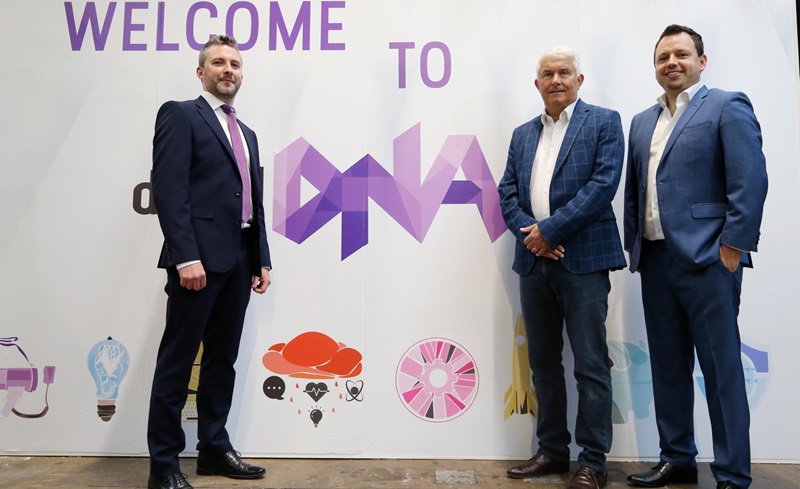Companies who are at the top of their industries are most vulnerable to advances in technology and must be prepared to adopt a culture of saying yes to change to remain market leaders, according to Danske Bank’s Chief Digital Officer.
Søren Rode Andreasen was speaking at a Danske Advantage breakfast to kick off the two-day Digital DNA 2018 conference in Belfast’s St George’s Market, which also heard from Brendan Monaghan, the CEO of Belfast-based software company Neueda.
“The more successful a company is in its sector the more threatened it is by change and the more reluctant it is to adopt it. It becomes easier to say no when you are already a market leader. But this sort of culture is the main reason that digitisation doesn’t happen – it is not about the investment or technology,” he said.
“Being a digital company is about constantly challenging the status quo and improving value to your customers. You always have to reinvent yourself and have a psychology of change. Because if you don’t, then you risk going the way of companies like Kodak.”
The Danske Bank Chief Digital Officer also said that customer expectations are driving change and that for many traditional industries, technology can be the game changer.
“The expectations of customers are no longer being set by the traditional banks, they are being set by the big tech companies. So we must assume whatever can be automated will be automated and an amazing digital experience is expected as standard. The focus then turns to what cannot be digitised and how that can add value to your customers’ experience.”
Brendan Monaghan, CEO of Neueda also addressed the audience, sharing insights from the company’s journey to becoming one of Ireland’s fastest growing technology companies and noting that Northern Ireland has an opportunity to benefit from the “4th Industrial Revolution”.
“Northern Ireland has a fantastic history of exporting and I believe that is where businesses from this part of the world need to focus today. We need more of our technology companies to be selling globally and bringing Euros and dollars back to Northern Ireland, rather than relying on customers from the public sector,” he said.
“The time to start doing that is now because the technology sector here is in great shape. I have never seen the start-up community so healthy, we have a lot of established Northern Irish software and technology companies selling to international customers and we have a big FDI base who are bringing investment in training and access to new technologies,” he added.
“By 2022, the majority of our workforce will be millennials who want collaborative work environments, interesting projects and opportunities to travel. In addition, we need to help successful local start-ups find customers, and thus help them fund their growth through the supply of either their product or services. This will help our local start-up community with its biggest challenge which is getting its first customers, the early adopters.”


